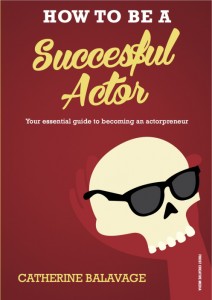My journey to become Catherine Yardley, author, was a tough one. It’s a known fact that writing is hard. Yes, the actual writing part can be tedious, but those who decide to go the traditional route quickly find out that writing the book was the easy part. The next part is getting a literary agent. The gatekeeper to a publishing deal. Finishing a book is a huge accomplishment in itself. When so much work goes into something, you want it to pay off. I had previously written non-fiction, and when the time came to try and get it published, I bought a copy of The Writer’s and Artist’s Yearbook.
It’s embarrassing to admit now, but I thought the whole get-an-agent-thing seemed exhausting. I was already exhausted from writing the bloody book! So I did a ton of research and went straight to publishers. Even more shockingly, all the editors replied, and the book went to acquisitions. Everyone was so nice and supportive. This was in 2013. You would probably get blacklisted emailing your book to editors nowadays.
I first queried my first fiction book, Ember, in 2020. It was a turbulent time in everyone’s life, and I wanted something good to happen. Yet I did not think for one second I would get an agent. Every rejection was confirmation of my belief that the book wasn’t good enough. This was just my first novel, I told myself. I will write more and query them too. In fact, I had two books: Ember and Where The Light is Hottest. I didn’t think the latter was ready yet. It took me six years to write both books simultaneously. I recommend having more than one book because an agent might like your writing but not the book you are querying. So, the first time was hard, but I wasn’t expecting success. 2020 was an incredibly traumatic year for me, and I was just trying to survive. In the end, I got two full requests from agents, signed with an agent, and also got offered two book deals. All good. Ember came out in March 2022 and did well. My agent was lovely, but we ended up parting ways.
Which brings me to what I want every querying writer to know: other than losing a loved one or a traumatic event, querying was the worst thing for my mental health. The constant rejections, the full requests that might lead to all of your dreams coming true. It’s a rollercoaster of pain and elation. I got a full request immediately. Then another. Still, it took an entire year for me to sign with a new agent. I was relentless. For every rejection, I send another three queries out. I want writers to understand the physical and emotional toll querying takes on you. It is a hard thing to go through. I believe querying is harder than ever. Publishing is slow at the moment, so agents are being cautious about what they take on. The day I cancelled my premium querytracker subscription (a site with all of the agents on which lets you directly submit to them) was a brilliant one. Take care of yourself. Join up with other querying writers. Take regular mental health breaks. Know that it can happen at any moment. It only takes one yes. More than anything, know that going after your dreams is hard and you are brave.
Keep at it. You will get there too. Just keep writing those books.
Where The Light is Hottest came out end of February and I Ember is also available here.



